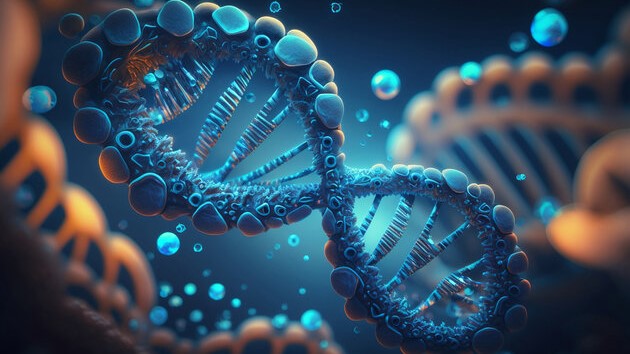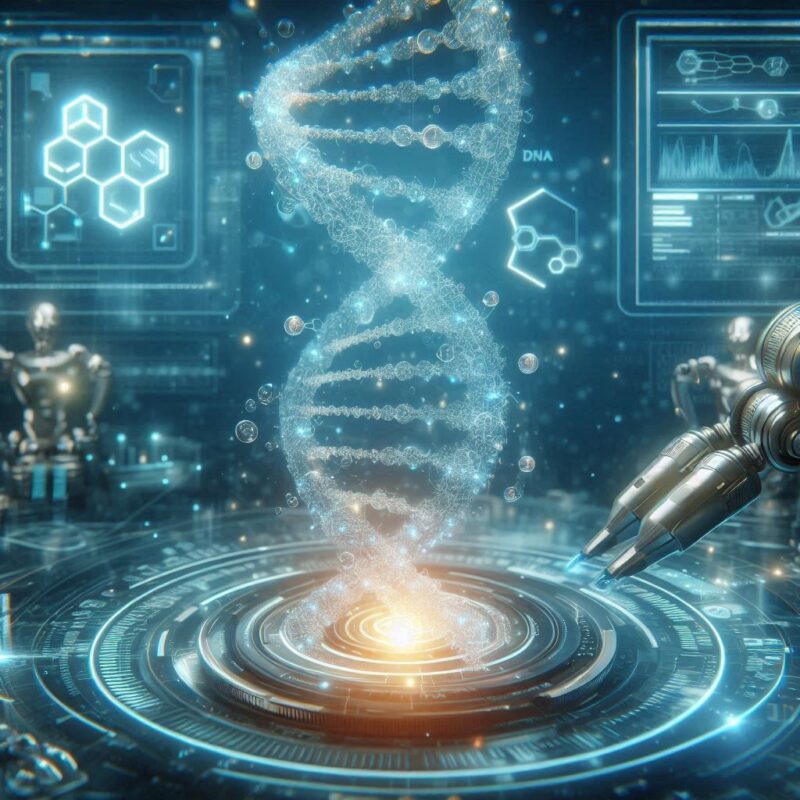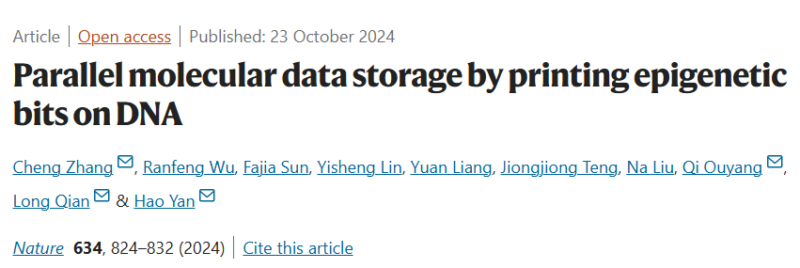
Reimagining Data Storage Through DNA Epigenetics – The Babak Lab
The Babak Lab shared a post on LinkedIn:
“Scientific Wednesday: Reimagining Data Storage Through DNA Epigenetics.
Imagine a world where data storage isn’t limited to silicon but uses DNA molecules—taking advantage of nature’s most efficient information storage system. In a recent study, scientists unveiled a cutting-edge DNA data storage approach using epigenetic modifications. Here’s a closer look at how this innovative framework could impact data storage:
1. Breaking Free from Traditional Synthesis
Unlike previous methods that rely on synthesizing new DNA strands, this approach is synthesis-free. By printing data onto pre-existing DNA templates using methylation patterns, the researchers achieved data encoding at a faster rate and lower cost. This “printing” method treats the DNA as a reusable, customizable canvas, a significant shift from traditional synthesis-based methods.
2. High-Density, Durable Data Storage
In one experiment, 275,000 bits were stored on DNA with accuracy rates over 97% during retrieval. The epigenetic modifications are stable and resilient, making this method both scalable and robust. It opens up possibilities for high-capacity data storage that can endure environmental stresses far better than silicon-based options.
3. Data Storage for Everyone—Distributed & Do-It-Yourself Opportunities
This approach allows for distributed data storage: data can be encoded by individuals outside of specialized labs. In trials, 60 volunteers with no lab experience successfully encoded their data using a basic kit, underscoring the potential for personal, secure storage where data remains private until sequenced.
4. Advanced Data Retrieval with Minimal Errors
To read the data back, high-throughput nanopore sequencing was used, supported by algorithms that refined data retrieval with impressive accuracy. This development minimizes retrieval errors and paves the way for reliable, high-fidelity data recovery, critical for practical use.
Discussion Points for You:
– How do you envision DNA-based data storage impacting areas beyond traditional storage, like personalized medicine or archival records?
– What might be some challenges we’ll face in making DNA data storage accessible and secure for widespread use?
– In what ways could distributed, at-home DNA data encoding change our approach to privacy and data ownership?
Let’s discuss in the comments!
Your insights on the potential applications, future challenges, or ethical implications could shed light on the directions this technology might take.
Read more in Nature Portfolio.”

Parallel molecular data storage by printing epigenetic bits on DNA
Authors: Cheng Zhang, Ranfeng Wu, Fajia Sun, Yisheng Lin, Yuan Liang, Jiongjiong Teng, Na Liu, Qi Ouyang, Long Qian, Hao Yan

More posts featuring The Babak Lab
-
Challenging the Status Quo in Colorectal Cancer 2024
December 6-8, 2024
-
ESMO 2024 Congress
September 13-17, 2024
-
ASCO Annual Meeting
May 30 - June 4, 2024
-
Yvonne Award 2024
May 31, 2024
-
OncoThon 2024, Online
Feb. 15, 2024
-
Global Summit on War & Cancer 2023, Online
Dec. 14-16, 2023
